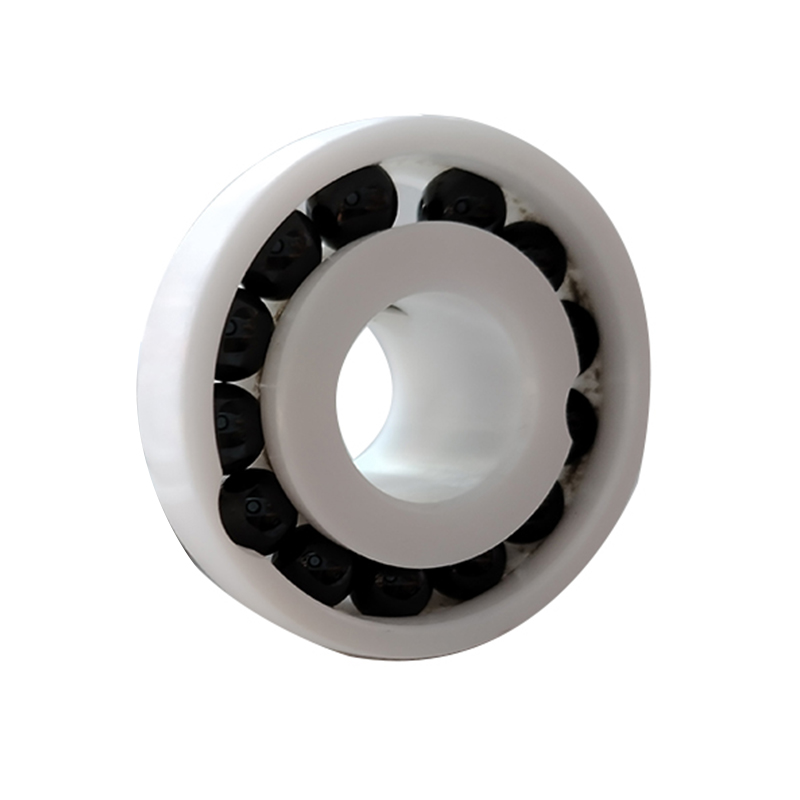Dec . 01, 2024 14:51 Back to list
6804 ceramic bearing
The Impact of 6804 Ceramic Bearings on Modern Machinery
In the modern world of machinery and engineering, the choice of components can significantly impact performance, durability, and efficiency. Among these components, bearings play a crucial role in ensuring smooth operation. One standout option in the realm of bearings is the 6804 ceramic bearing, which has gained popularity due to its unique properties and advantages over traditional steel bearings.
A ceramic bearing, specifically the 6804 type, comprises ceramic balls, usually made from materials such as silicon nitride. This particular configuration boasts an inner diameter of 20 mm, an outer diameter of 32 mm, and a width of 7 mm. It is commonly utilized in applications where reliability and longevity are paramount. The inherent characteristics of ceramic materials provide numerous benefits, including lower friction coefficients, superior wear resistance, and the ability to withstand extreme temperatures.
One of the primary advantages of the 6804 ceramic bearing is its resistance to corrosion and wear
. Unlike traditional metal bearings, which can suffer from rust and degradation when exposed to moisture or certain chemicals, ceramic bearings maintain their integrity under harsh conditions. This makes them particularly suitable for applications in corrosive environments or when dealing with lubricants that might deteriorate metal components.Moreover, ceramic bearings are lightweight compared to their steel counterparts. This reduced mass can lead to enhanced performance in high-speed applications, where minimizing inertia is critical for maintaining efficiency. In industries such as aerospace, automotive, and high-performance sports equipment, the reduced weight of ceramic bearings contributes to improved fuel efficiency and more responsive handling.
6804 ceramic bearing

Another notable feature of the 6804 ceramic bearing is its ability to operate effectively at higher temperatures. Ceramic materials have higher thermal stability, which allows these bearings to function in conditions where metal bearings might fail due to overheating. This characteristic is particularly beneficial in electric motors and high-speed machinery, where heat generation is common. By incorporating 6804 ceramic bearings, manufacturers can enhance the longevity and reliability of their machinery, significantly reducing maintenance costs and downtime.
Furthermore, ceramic bearings often exhibit lower friction levels than traditional bearings, contributing to improved overall efficiency. As friction is a primary source of energy loss in mechanical systems, lowering this factor can lead to enhancements in performance, reducing the energy wasted as heat. The improved efficiency not only benefits the machinery but also has a positive environmental impact by decreasing energy consumption.
It is essential to consider the application requirements when selecting a bearing type. While the 6804 ceramic bearing offers numerous advantages, they may not be the best choice for every situation. For example, in applications where shock loads are prevalent, ceramic bearings may be more susceptible to cracking than metal bearings, making careful application evaluation indispensable.
In summary, the 6804 ceramic bearing stands out as a high-performance alternative to traditional bearings in many modern engineering applications. Its properties—such as lightweight construction, resistance to corrosion and wear, high-temperature stability, and lower friction—make it an excellent choice for industries focused on performance, reliability, and efficiency. As technology continues to advance and the demand for superior machinery grows, the use of ceramic bearings like the 6804 will likely become increasingly prevalent, paving the way for innovations that push the boundaries of what is possible in engineering. With their unique blend of durability and efficiency, 6804 ceramic bearings undeniably represent a vital component in the machinery of tomorrow.
Latest news
-
25MM 2 BOLT UCFLX05-14 Flange bearing unit( oval)
NewsMar.07,2025
-
4 bolt UCF 200 series Pillow block bearings
NewsMar.07,2025
-
25MM 2 BOLT UCFLX05-14 Flange bearing unit( oval)
NewsMar.07,2025
-
UCF216-50 4-Bolt Flange Housing Square Bearing
NewsMar.07,2025
-
25MM 2 BOLT UCFLX05-14 Flange bearing unit( oval)
NewsMar.07,2025
-
spherical roller bearing material exporter
NewsMar.07,2025





